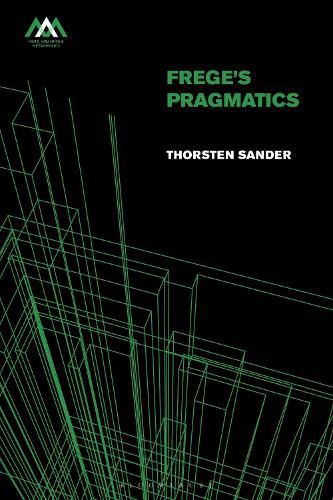Readings Newsletter
Become a Readings Member to make your shopping experience even easier.
Sign in or sign up for free!
You’re not far away from qualifying for FREE standard shipping within Australia
You’ve qualified for FREE standard shipping within Australia
The cart is loading…






Uncovering an aspect of Gottlob Frege's linguistic theorizing that has until now received little attention, this volume offers the first detailed exposition of Frege's pragmatics. Thorsten Sander explores his views on colouring, side-thoughts, presuppositions, indexicals and illocutionary force and closely relates these to current research in philosophy of language and linguistics.
Throughout his career, Frege was concerned with various secondary aspects of meaning. He claims, for instance, that the two words 'dog' and 'cur' differ not in what he calls sense, but merely in colouring. By contrast, the difference between 'morning star' and 'evening star' is supposed to be a matter of sense. How exactly does sense differ from colouring? Frege also claims that by using a proper name one presupposes the existence of its bearer and that our utterances are frequently associated with side-thoughts. What exactly does he mean by these terms, and wherein lies the difference between these phenomena?
Frege's Pragmatics answers questions such as these, providing a fresh perspective on Frege's account of various pragmatic aspects of language. In this first book-length treatment, Sandor makes the case that Frege's groundbreaking ideas are an essential part of his overall philosophical enterprise.
$9.00 standard shipping within Australia
FREE standard shipping within Australia for orders over $100.00
Express & International shipping calculated at checkout
Uncovering an aspect of Gottlob Frege's linguistic theorizing that has until now received little attention, this volume offers the first detailed exposition of Frege's pragmatics. Thorsten Sander explores his views on colouring, side-thoughts, presuppositions, indexicals and illocutionary force and closely relates these to current research in philosophy of language and linguistics.
Throughout his career, Frege was concerned with various secondary aspects of meaning. He claims, for instance, that the two words 'dog' and 'cur' differ not in what he calls sense, but merely in colouring. By contrast, the difference between 'morning star' and 'evening star' is supposed to be a matter of sense. How exactly does sense differ from colouring? Frege also claims that by using a proper name one presupposes the existence of its bearer and that our utterances are frequently associated with side-thoughts. What exactly does he mean by these terms, and wherein lies the difference between these phenomena?
Frege's Pragmatics answers questions such as these, providing a fresh perspective on Frege's account of various pragmatic aspects of language. In this first book-length treatment, Sandor makes the case that Frege's groundbreaking ideas are an essential part of his overall philosophical enterprise.